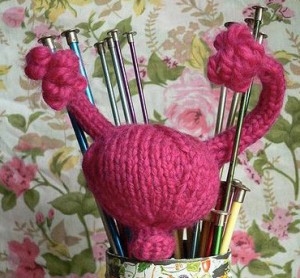Research by SMCR members Tomi-Ann Roberts and Nicki Dunnavan garnered a lot of attention this week. Stories showed up at Live Science – Why Why Women Should Bring Their Periods ‘Out of the Closet, popular ladyblog Jezebel – Your Period Is a Time for Deep Lady-Bonding, and the Daily Mail – Women, start talking about it. Period! Roberts and Dunnavan surveyed 340 religious and non-religious women about their experiences and attitudes about menstruation. As the Daily Mail reported: “U.S. researchers say women across the world need to be more positive about menstruation – and that means talking about it in public.”
There’s been lots of public discussion about contraception, some might say too much! The birth control/medical insurance coverage brouhaha hit a boiling point last week with Rush Limbaugh’s egregious comments about Sandra Fluke, and the heated debate rages still. Maureen J Andrade at OpenSalon writes that Birth Control Is Not a Women’s Issue: It’s a Human Right, while Asma T. Uddin and Ashley McGuire, blogging at the Washington Post, insist It’s about religious liberty, not birth control. A group of crafters has come up with a unique protest action: sending “interfering” male government members a knitted or crocheted uterus, vagina or cervix, while feministing.com has invited readers to Talk About Birth Control For REAL.
Back to women’s experience of menstruation, Enith Morillo in Menses’ non-sense: Menstruation and the Muslim Woman’s “Red Tent” and Carolyn West in Menstruation – Celebration or Taboo?, explore different cultural menstrual traditions.



”U.S. researchers say women across the world need to be more positive about menstruation – and that means talking about it in public.”
That’s true but if women are negative about menstruation it’s not without reason: we have to look at the myths about menstruation, how the mainstream media views menstruation etc to understand why women often feel menstruation is ‘a bad thing’.
So yes, women need to be informed and be more positive about menstruation, but society in general must change its view of menstruation too. Just telling women that they need to be positive about it as if there wasn’t any cause to this negativity towards menstruation is blaming women for the oppression they are experiencing. I think one must be careful in making this sort of statement.
Anyway, as always, thank you for these very interesting links.
The trouble with the media getting hold of your peer-reviewed research is that you no longer have control of how the work gets spun. Of course Nicki and I never said “women across the world need to be more positive about menstruation.” That is what REPORTERS have decided to conclude from our work. If you read our actual study in Sex Roles you will see that we learned from religious women that the oppressive rituals they engage in are just that – they are oppressive! And this means these women feel a lot of negative attitudes toward their periods. Obviously society must change its views of menstruation! We identified one thing that, ironically, religious women have that secular women lack, and that is a sense of community with other menstruating women. Finding this made us realize how much we secular women often tacitly agree to all sorts of seclusion and secrecy rituals, which isolates us from one another. Our work opened our eyes to the powerful potential in communal menstruation. I do not believe that means we blamed any menstruating women for the oppression that religious or secular societies impose upon them.
Yes I understand. Your work is very interesting and eye-opening and it is sad that it is misrepresented in the media. Thank you for your answer!